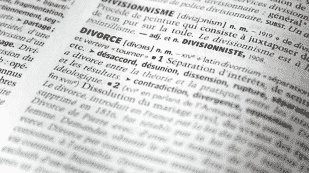








Welcome to LegalAdvice.com expert page on the topic of Family Law. Family Law covers many different types of topics including procedures for adoption, obtaining child custody, obtaining child support, procedures for obtaining a divorce, preventing domestic violence, acquiring spousal support and more.
Family law is an area of legal practice that includes a variety of topics concerned with the relationships between members of a family unit. The creation of family relationships and the termination of those relationships are governed by important legal formalities such as marriage certificates, birth certificates, divorce decrees, adoption papers, guardianship decrees and more. The body of rules that govern these family relationship clarify any rights and obligations that are owed a person as determined by both state and federal law.
Divorce is the most common legal procedure to terminate a marriage. Divorce law mostly consists of the procedural mechanisms that are mandated by the state to dissolve a relationship that had previously been recognized by the state in accordance with the formalities associated with obtaining a legally recognized marriage. The divorce process requires a petition to the state court requesting dissolution of the marriage before all the rights and obligations associated with marriage are terminated. A court will issue a divorce judgment and/or divorce decree that allows for all parties to re-marry should they choose. A divorce judgment or decree will typically include court orders that also mandate for distribution of any marital assets and debts, as well as spell out any rights and obligations associated spousal support and child visitation.
Child custody is a legal term that refers to the guardianship over a child’s care. Custody as determined by the court grants authority to make decisions on the child’s care, included educational and medical care. A custody order is issued by a court that sets out the rights and obligations of one or both parents that are to be involved in the raising of a child until the child reaches an age that is deemed sufficient under the laws of the state. The right and obligations of all parties are set out by the court order as to how the child or children will be raised and is to be followed by all parties, subject only to a future petition that modifies an existing order and arrangement.